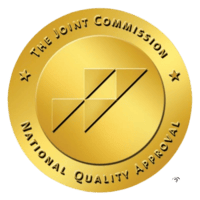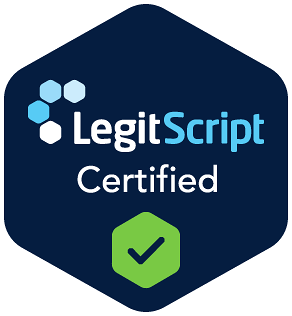Understanding Prescription Medication Dependency
An alarming number of individuals worldwide are grappling with prescription medication dependency, a complex issue that necessitates a nuanced understanding of its origins, implications, and potential solutions. This dependency often stems from misconceptions about medication use, leading to misuse and addiction. Dependency misconceptions, typically born out of a lack of knowledge or misinformation, can lead to harmful patterns of prescription drug use. Many people believe that prescription drugs are inherently safe because physicians prescribe them. However, these medications, when used beyond their prescribed purpose or frequency, can lead to serious health risks.
While the doctor’s role is critical, the individual’s responsibility lies in adhering to the prescribed guidelines. Understanding the potential for dependency and the importance of responsible medication use is essential in preventing prescription drug addiction. This knowledge empowers individuals to make informed decisions about their health, leading to safer prescription medication use.
The Importance of Focused Detox
Despite preventive measures’ importance, prescription medication dependency may still take hold, necessitating a focused, strategic detox process. A targeted approach to detoxification can be pivotal in breaking the cycle of addiction, restoring health, and fostering recovery. One key element of a focused detox process involves harnessing detox diet benefits. A well-formulated detox diet eliminates harmful substances while replenishing the body with necessary nutrients, aiding physiological balance restoration, and improving mental well-being by reducing withdrawal symptoms.
In addition, holistic detox methods are integral to a successful detox process. Techniques such as mindfulness, yoga, and acupuncture can help manage withdrawal symptoms and strengthen mental resilience. These methods provide a thorough approach to detoxification that addresses not just the physical but also the psychological and emotional dimensions of addiction.
Challenges During Prescription Drug Detox
Detoxification from prescription drugs presents challenges requiring unique management strategies. Physical withdrawal symptoms like nausea, tremors, and headaches can be severe, posing significant obstacles. Additionally, the emotional toll of detoxification, including anxiety, depression, and isolation, highlights the need for a holistic detox approach addressing both physical and psychological addiction aspects.
When going through prescription drug detoxification, it is important to understand that it is a complex process fraught with challenges. Beyond the difficulties of withdrawal symptoms, individuals might also face misconceptions of detox’s effectiveness. A shift towards holistic detox approaches is gaining traction to manage these challenges. Holistic detoxification addresses not only the physical aspect but also psychological, emotional, and social dimensions of recovery.
Physical Withdrawal Symptoms
When going through prescription drug detox, you may experience physical withdrawal symptoms, which can make recovery challenging. These symptoms can be both debilitating and extensive, acting as hurdles on the journey to sobriety. Withdrawal management becomes essential in this phase, helping navigate detoxification complexities. The physical symptoms vary by prescription drug type but commonly include nausea, sweating, shaking, and severe headaches. Additional health conditions can complicate symptoms, heightening detox process difficulty.
Key management of these symptoms lies in a personalized detox approach, including medical supervision, medication for discomfort relief, and a supportive environment to focus on recovery. Understanding physical withdrawal symptoms’ nature and severity is pivotal in formulating effective strategies.
Emotional Detox Challenges
Beyond physical hurdles, emotional challenges present a formidable landscape in prescription drug detox, often requiring strategic navigation and resilience. Individuals confronting the sobriety journey face emotional trials equally debilitating. Fear of withdrawal symptoms, intense cravings, and a heightened sense of isolation test emotional resilience. Anxiety and depression intensified by the detox process further showcase the need for mental health support during this period.
These emotional challenges underscore the indispensability of mental health support during detox. Fostering emotional resilience is key, emphasizing therapy, support groups, and mindfulness. Understanding and confronting emotional detox challenges is integral to recovery. With emotional resilience and mental health support, individuals can navigate this difficult terrain, emerging stronger on the other side.
Strategies for Effective Detox
Numerous detox strategies exist, designed to facilitate safe withdrawal from drug dependence. Alternative therapies and detox diets have gained recognition due to their holistic healing approach. Techniques like acupuncture, yoga, and mindfulness aim to alleviate withdrawal symptoms and restore mental, physical, and emotional balance. Used with traditional detox methods, they provide a comprehensive approach to detox, addressing both physical and psychological dimensions of withdrawal.
Detox diets focus on nurturing the body with nutrient-dense foods and ample hydration, aiding the body’s detoxification processes. These diets expedite toxin elimination, restore gut health, and bolster the immune system, smoothing the withdrawal process. While supportive, these strategies are not standalone solutions. Medical supervision and personalized treatment plans ensure a safe detox journey through facilities like BlueCrest Detox.
Maintaining Recovery Post-Detox
Successfully maneuvering through detoxification is only the first step; maintaining recovery post-detox requires commitment, vigilance, and a comprehensive plan for physical and mental well-being. Recovery intricacies extend beyond abstinence, involving change and growth, with support systems playing a crucial role. These systems, often including family, friends, and counselors, provide necessary emotional reinforcement to navigate temptation and self-doubt.
Relapse prevention involves identifying and avoiding triggers to sustain recovery. By learning new coping mechanisms to manage stress and cravings, individuals can achieve a fulfilling, drug-free life. Maintaining recovery post-detox is a lifelong commitment demanding a multifaceted approach. With support systems and relapse prevention strategies, individuals can sustain sobriety confidently and persevere on their journey.

Final Thoughts
A focused approach to drug detox for prescription medications is crucial to overcoming dependency. Personalized treatment plans, medical supervision, and the integrating of alternative therapies contribute to successful outcomes. Effective strategies can mitigate the challenges during detox, and evidence from successful detox journeys attests to this approach’s efficacy. Maintaining recovery after detox is vital to guarantee long-term health and well-being, further validating the need for a thorough, individual-centric approach.
At BlueCrest Detox, we’re dedicated to elevating you from the struggles of substance use to the peaks of recovery and resilience. Our expert team offers personalized, evidence-based treatment services tailored to support your unique journey toward healing. Reach out to us for the compassionate care you deserve on your path to wellness. Follow us on Facebook for ongoing support, insights, and inspiration on your recovery journey.
Frequently Asked Questions
What Are Some Common Symptoms of Prescription Medication Withdrawal?
Common symptoms of prescription medication withdrawal can include physical discomfort, emotional distress, and significant psychological impact. The withdrawal timeline varies, depending on the specific medication, dosage, and duration of use.
Can Detox Be Life-Threatening for Certain Prescription Medications?
Yes, detox can be potentially life-threatening for certain prescription medications. The detox duration and the presence of medical supervision in rehabilitation programs are vital factors impacting the safety and success of the detox process.
Are There Any Home Remedies to Assist With Prescription Drug Detox?
While natural detoxifiers and herbal interventions can support overall health, home remedies should not replace medical supervision for prescription drug detox due to potential withdrawal complications. Always consult a healthcare professional first.
Is It Possible to Detox From Multiple Prescription Medications Simultaneously?
Detoxing from multiple prescription medications simultaneously is possible but complex. It underscores the importance of medical supervision in implementing a safe, effective dual detox strategy, minimizing risks, and optimizing recovery outcomes.
How Does Health Insurance Factor Into the Cost of Detox Treatment?
Health insurance coverage specifics greatly impact the cost of detox treatment, potentially reducing out-of-pocket expenses. However, individual policies vary, so it’s important to understand your insurance benefits and limitations fully beforehand.




